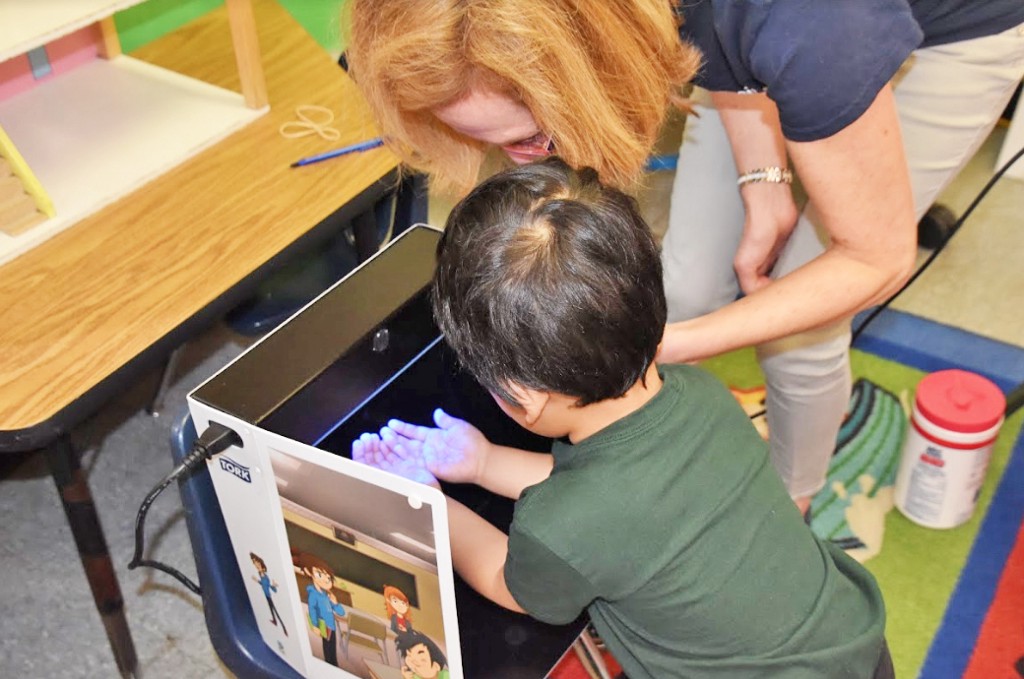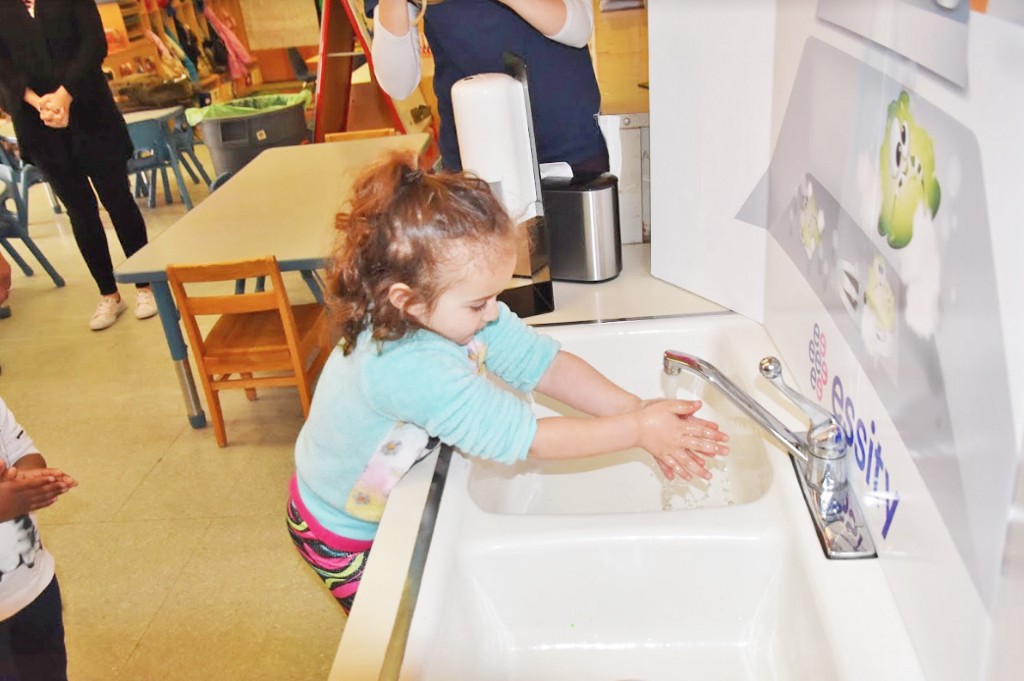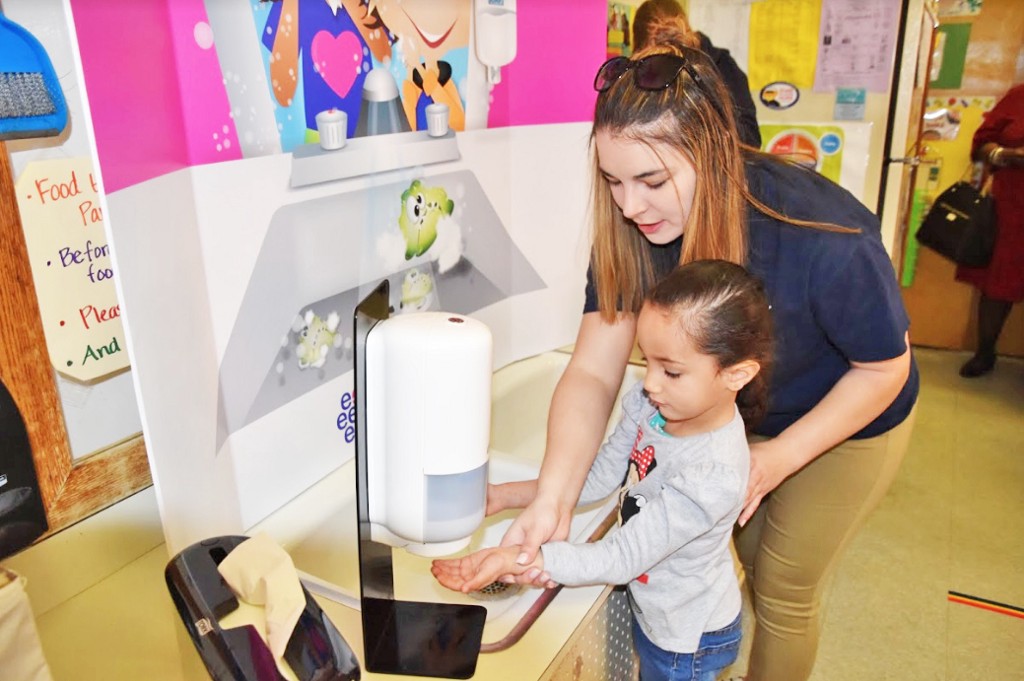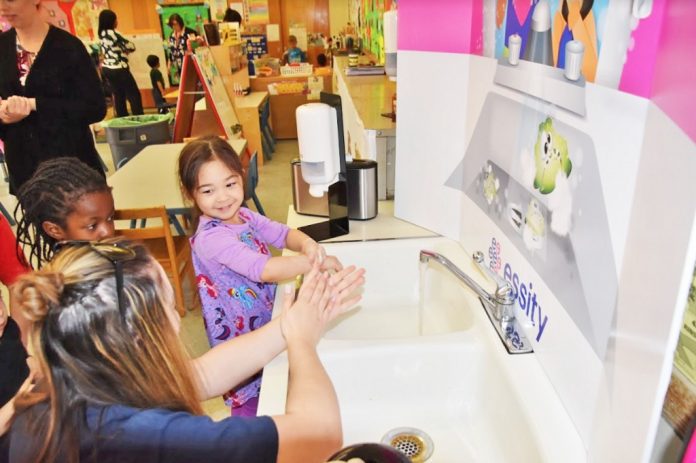Essity, a global hygiene and health company, recently concluded its first pilot hand hygiene education program with the preschool students at FitzPatrick.
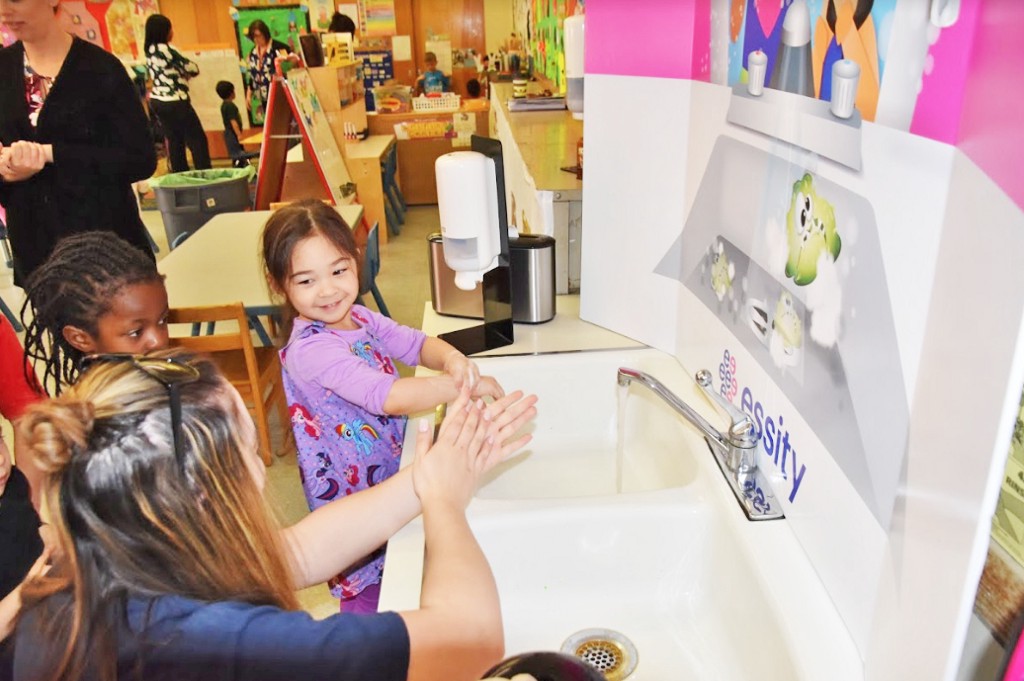
It was everybody’s birthday at FitzPatrick Early Learning Center last Thursday.
Essity, a global hygiene and health company with North American headquarters in Philadelphia, concluded its first pilot hand hygiene education program with the preschool students at FitzPatrick, located in a building adjacent to the elementary school, 11601 Knights Road.
In January, the School District of Philadelphia partnered with Essity to launch this program to show students how to properly wash their hands in an effort to exhibit good hygiene. In addition to the partnership with the school district, Essity connected with Temple University’s College of Public Health to evaluate the results of this pilot program.
According to the CDC, the 2017–2018 flu season was the worst since 2009.
Diane Engler, who oversees communication in North America for Essity, introduced the students to Gunky Gus. Although Gunky Gus may look nice, Engler assured the students that the cartoon resembling a germ was not their friend.
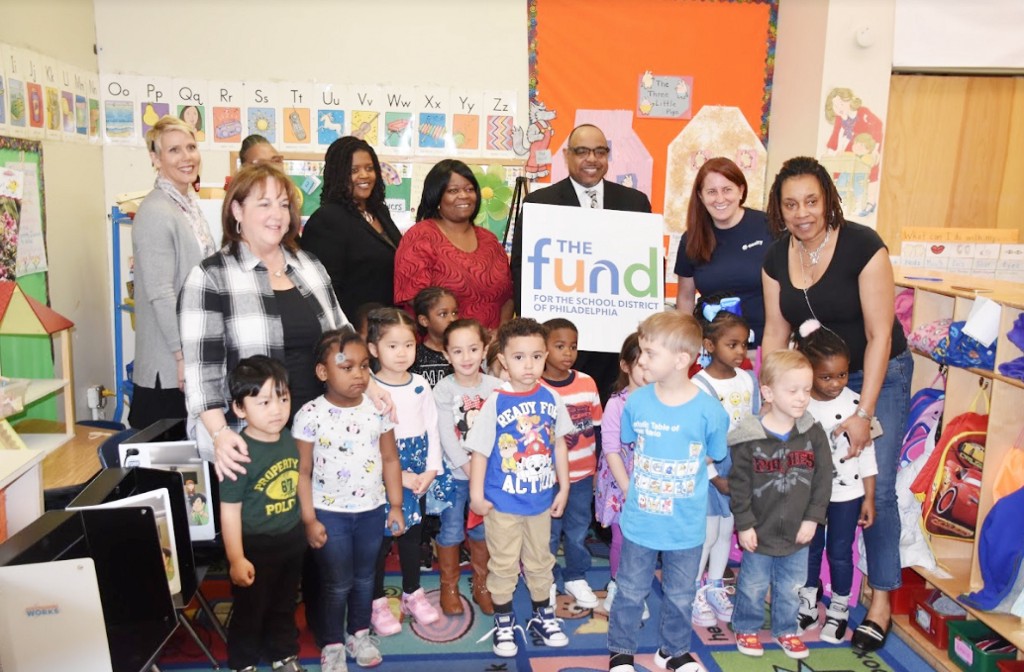
Engler discussed with the students how easily germs can be spread among one another and discussed ways to practice proper hygiene. She was impressed to see the class properly know to not sneeze in their hands, but onto their arm. She explained the many different ways to fight germs and some of the most important start at washing your hands the proper way.
Most of the time, students cannot simply look at their hands and tell if it is germ infected, so Engler provided an activity to simulate the detection of germs.
“The way we really bring this home with kids is we have what we call a blacklight activity,” Engler explained. “So we put some what we call pretend germs (lotion) on their hands and it glows in the dark when you put it under a blacklight and then the kids wash their hands and they come back and we test them under the light again to make sure it’s all gone. And if they have a little bit on there, it shows them, I might have needed to wash my hands a little bit better.”
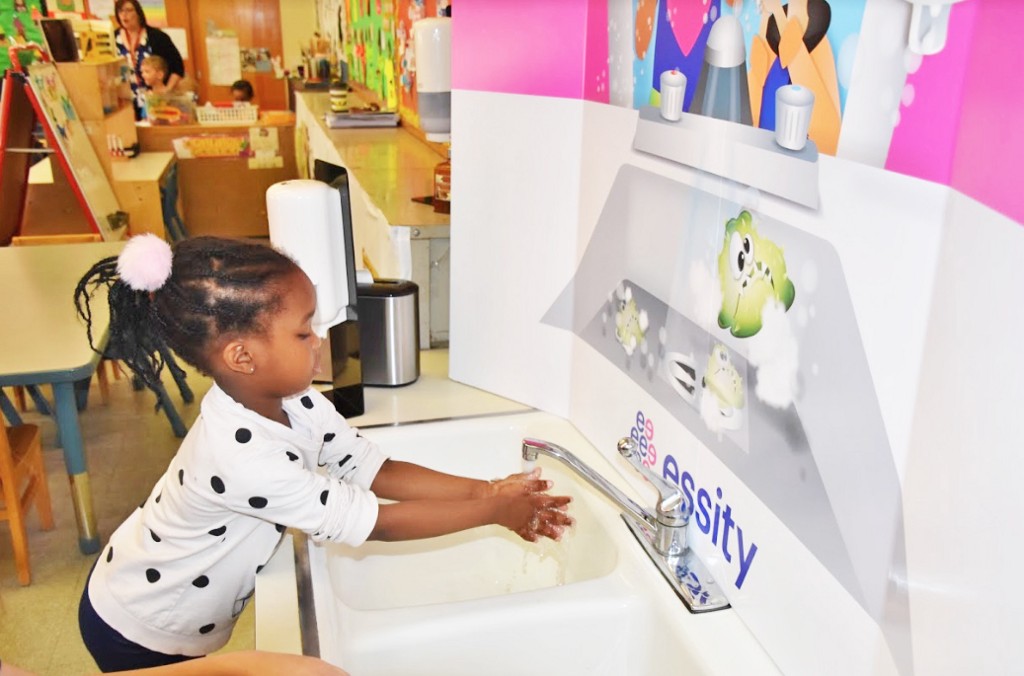
The students could clearly see the difference in germs on their hands from before to after washing their hands. How long should a person know to wash their hands? By singing happy birthday, of course.
Engler explained to the students that you should wash your hands for approximately 20 seconds, or the time to sing happy birthday twice. Students sang aloud “happy birthday everybody” to show the length it will take to ensure their hands are clean.
Dr. Natalie Mathurin, the school district’s medical director, believes this exercise is crucial for students.
“This is particularly important for our little ones,” said Mathurin. “You know because they’re still at the stage where it’s ‘touchy feely’ and ‘hand to mouth,’ so handwashing for them is crucial and for us.”
Even the teachers and administrators present were able to partake in the activity to show the students hand hygiene is vital to people of all ages.
“This pilot could not have been timed better, with the way Philadelphia was hit with unpredictable weather and the flu season run rampant this year,” said John Barber, chief development officer, The Fund of the School District of Philadelphia.
With the results of the study with Temple expected to come out in a couple of months, Engler is excited to see what the numbers indicate.
“We expect later this year to get the results so that we’ll have it in time hopefully for the next school year, so we can adjust.” ••
John Cole can be reached at [email protected]
